
Diploid by 1315031407
diploid /dip·lo·id/ a Bio sifat (keadaan) yang ditandai dengan dua perangkat kromosom ★ Pencarian populer hari ini
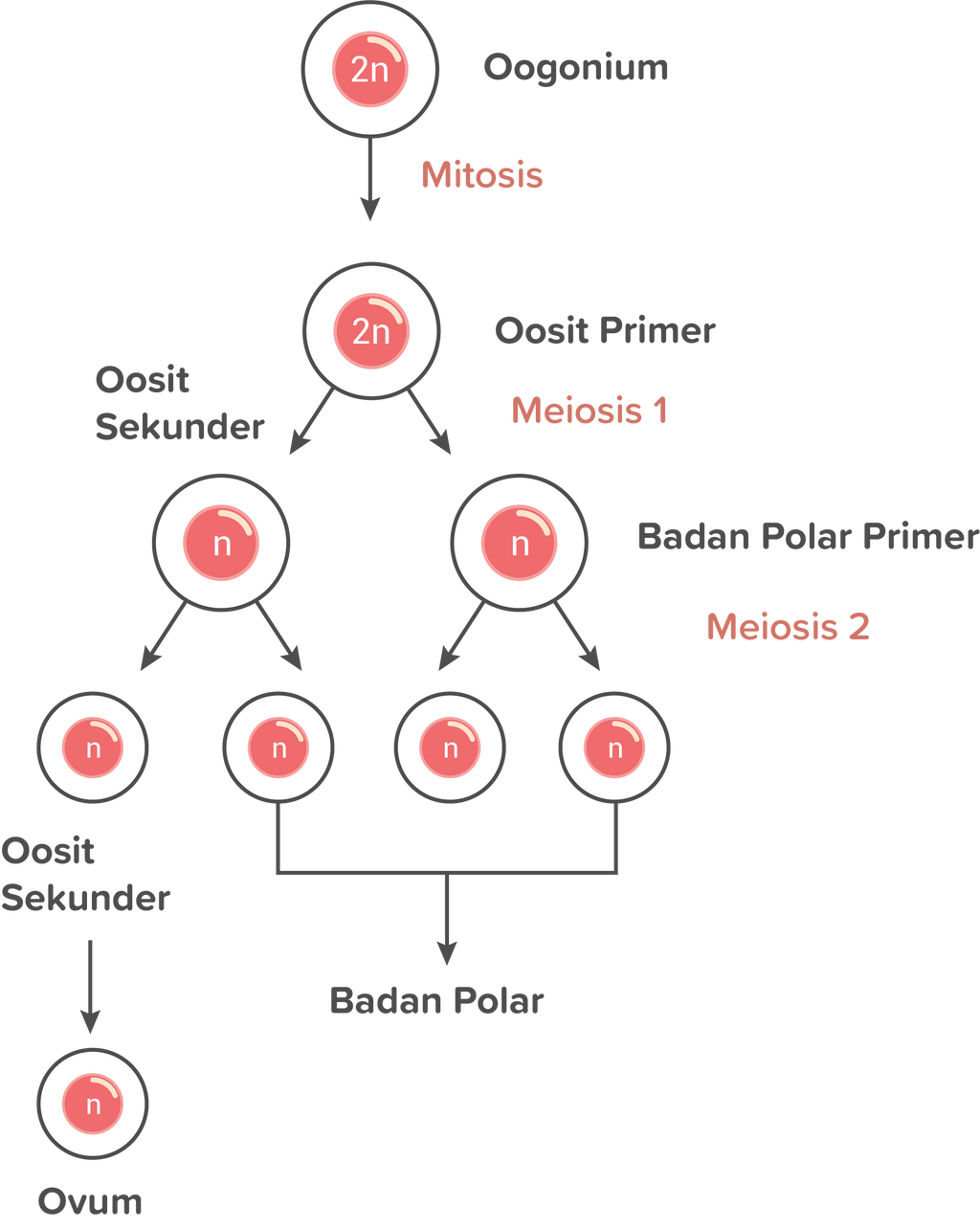
Ide Terpopuler Gambar Proses Oogenesis
chromosome number, precise number of chromosomes typical for a given species. In any given asexually reproducing species, the chromosome number is always the same. In sexually reproducing organisms, the number of chromosomes in the body (somatic) cells typically is diploid (2n; a pair of each chromosome), twice the haploid (1n) number found in the sex cells, or gametes.
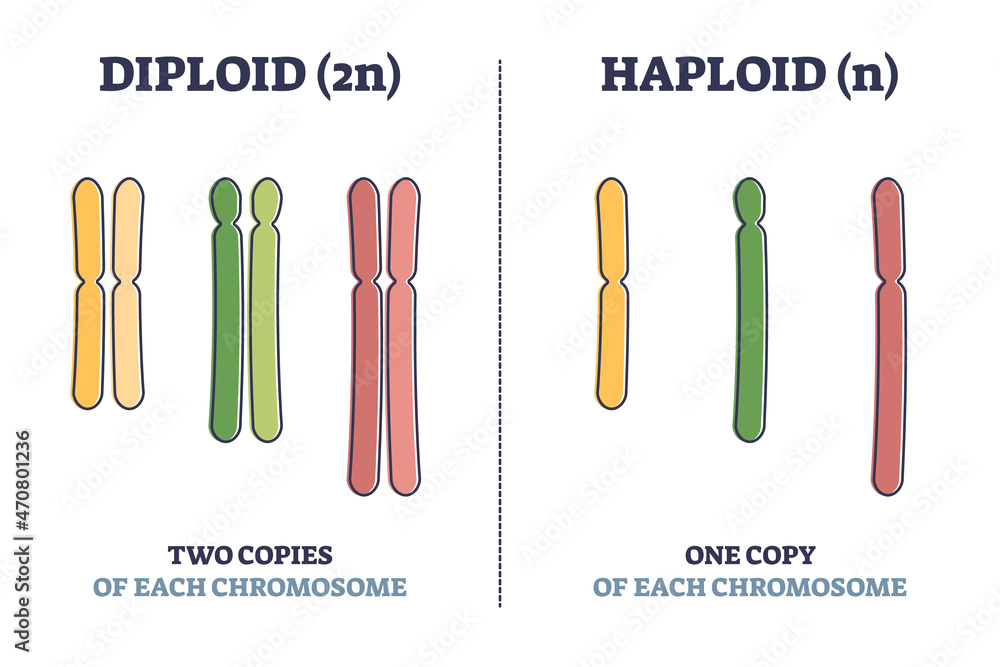
Diploid vs haploid as complete chromosome sets count comparison outline diagram. Labeled
A diploid cell is a cell that contains two complete sets of chromosomes. This is double the haploid chromosome number. Each pair of chromosomes in a diploid cell is considered to be a homologous chromosome set. A homologous chromosome pair consists of one chromosome donated from the mother and one from the father.

Diploid / Diploid Flashcards Quizlet / How to use diploid in a definition of diploid (entry 2 of
Diploid is a cell or organism that has paired chromosomes, one from each parent. In most organisms, the somatic cells are diploid, whereas the sex cells tend to be haploid. The diploid cells have two homologous copies of the two chromosomes obtained from two parents. Almost all mammals are considered diploid organisms except for some rats.

Diploid by 1315031749
In the insect order Hymenoptera (ants, bees, wasps, and sawflies), females are produced from fertilized eggs and are diploid, whereas males hatch from unfertilized eggs and are haploid ( Cook and Crozier 1995 ).
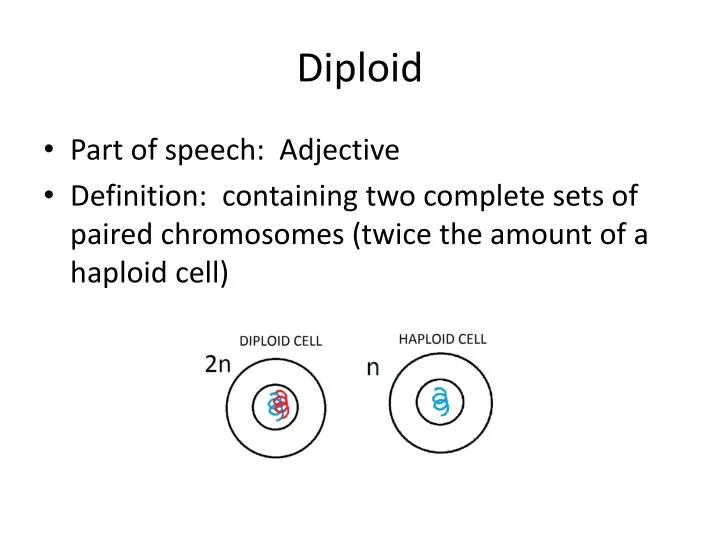
PPT Diploid PowerPoint Presentation, free download ID2929112
Jawaban: Definisi Dilansir dari PEDIAA, kromosom diploid (2n) adalah kromosom homolog yang berpasangan atau dua kromosom dalam satu set. Sedangkan kromosom haploid (n) adalah sel yang hanya terdiri satu set kromosom. Perbesar Kromosom haploid dan kromosom diploid (KOMPAS.com/SILMI NURUL UTAMI) Jumlah
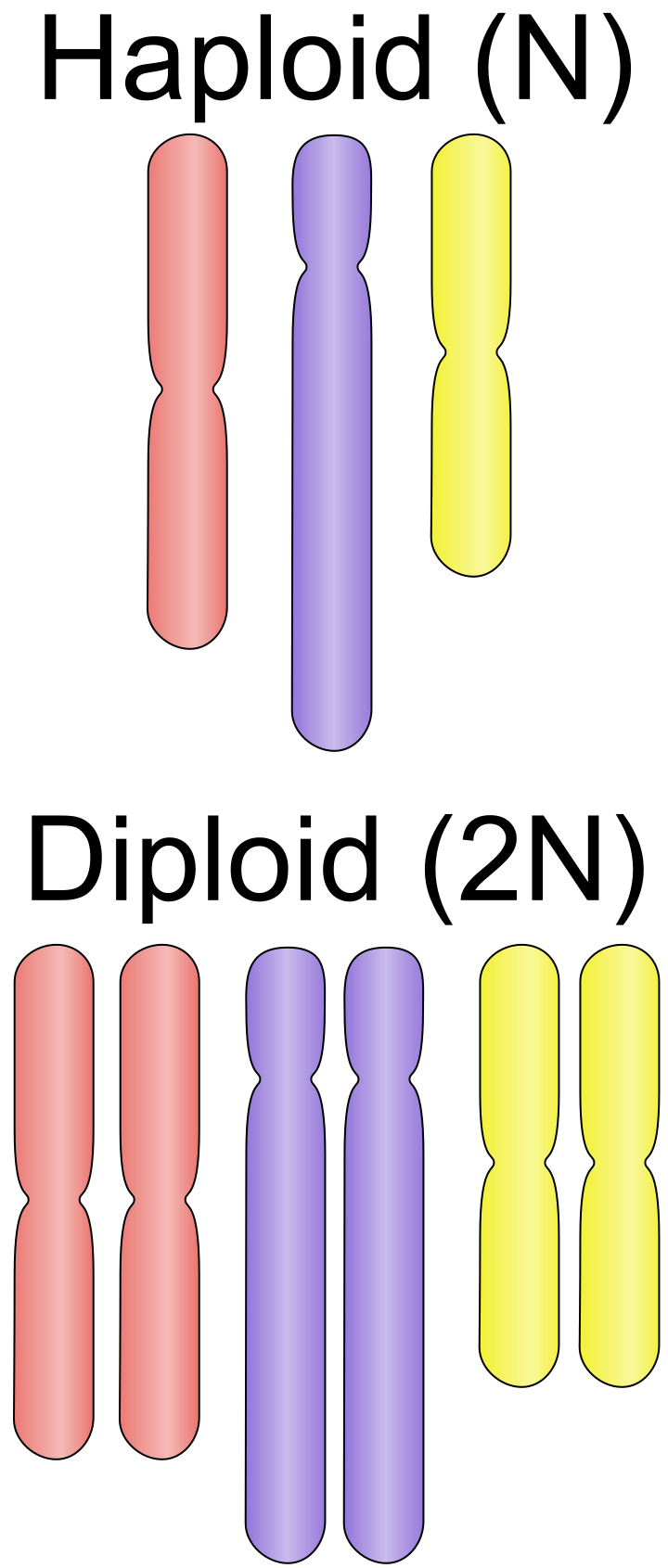
Diploid vs Haploid Similarities and Differences Albert.io
UK /ˈdɪplɔɪd/ (Genetics) adjective 1. (of a cell or nucleus) containing two complete sets of chromosomes, one from each parent Compare with haploid Examples An obvious question is whether the mat bias is absent in azygotic meiosis after homologous chromosomes have coexisted in diploid cells for many mitotic divisions.North American Oocytes and s.
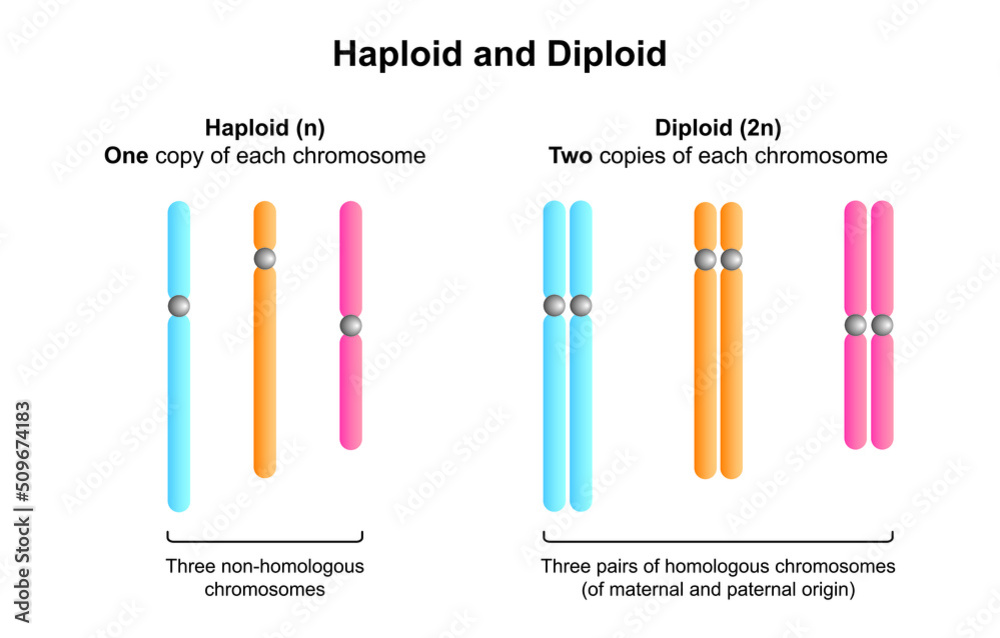
Scientific Designing of Differences Between Haploid and Diploid. Diploid vs Haploid. Colorful
… Diploid. A diploid cell has two complete sets of chromosomes. Most cells in humans are diploid, comprising 23 chromosome pairs, so 46 chromosomes in total. This is 22 pairs of autosomes and a pair of sex chromosomes. One copy of each chromosome pair came from the individual's mother and the other from the individual's father.
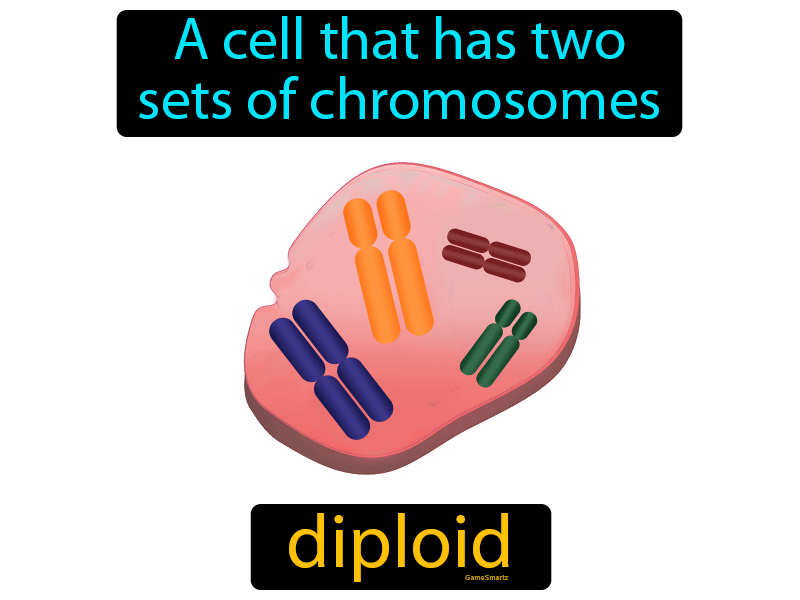
Diploid Image Game Smartz
Diploid ( serapan dari bahasa Belanda: diploïde) ialah sebutan untuk sel atau individu yang memiliki sel dengan dua set genom. [1] Setiap genom dalam sel berpasangan dengan homolognya berdasarkan ukuran panjang kromosom. [2] Sel diploid terbentuk dari fertilisasi sel-sel gamet yang haploid. [1]
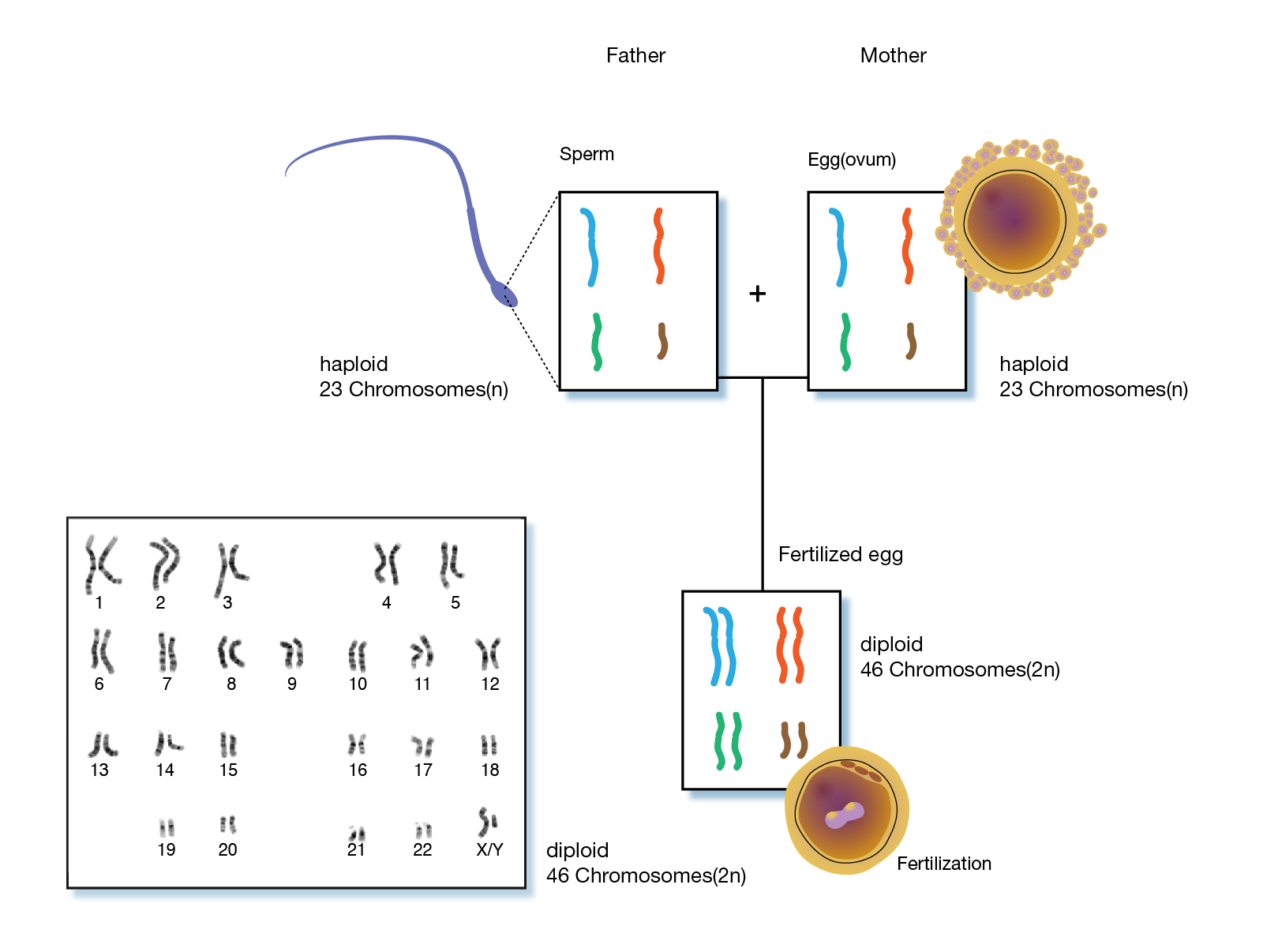
Diploid
diploid. Diploid describes a cell that contain two copies of each chromosome. Nearly all the cells in the human body carry two homologous, or similar, copies of each chromosome. The only exception.
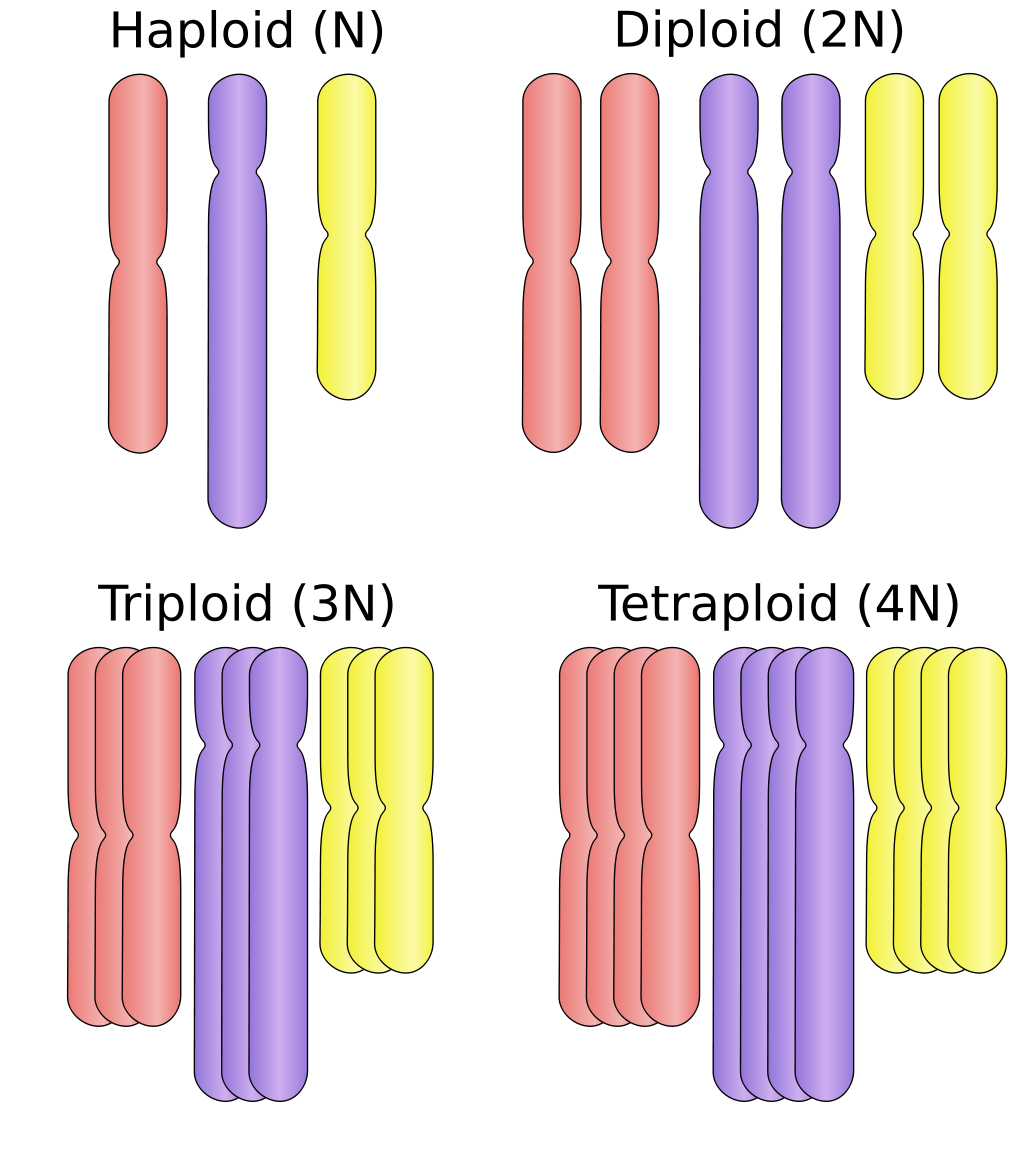
Meiosis QCE Biology Revision
Arti kata, ejaan, dan contoh penggunaan kata "diploid" menurut Kamus Besar Bahasa Indonesia (KBBI). dip·lo·id a Bio sifat (keadaan) yg ditandai dng dua perangkat kromosom. Bantuan Penjelasan Simbol. a Adjektiva, Merupakan Bentuk Kata Sifat. v Verba, Merupakan Bentuk Kata Kerja. n Merupakan Bentuk Kata benda.

Menjelajahi Bentuk, Ukuran, dan Struktur kromosom YouTube
diploid Describing a nucleus, cell, or organism with twice the haploid number of chromosomes characteristic of the species. The diploid number is designated as 2n. Two sets of chromosomes are present, one set being derived from the female parent and the other from the male. In animals, all the cells except the reproductive cells are diploid.
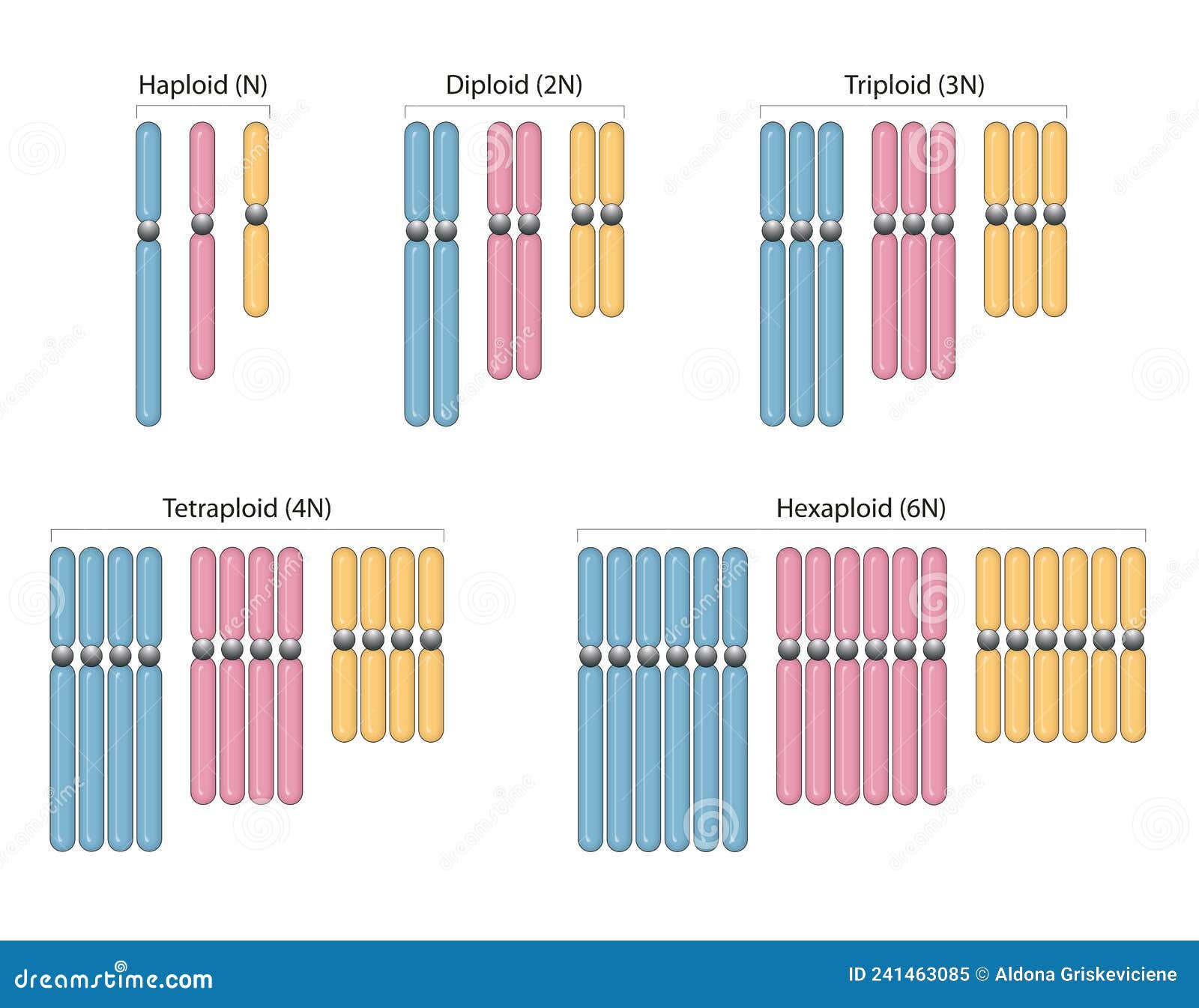
Types of Polyploidy. Haploid N, Diploid 2N, Triploid 3N, Tetraploid 4N, Hexaploid 6 Stock
Diploid describes a cell or nucleus which contains two copies of genetic material, or a complete set of chromosomes, paired with their homologs (chromosome carrying the same information from the other parent).

Arti Kata Diploid di Kamus Besar Bahasa Indonesia (KBBI)
Ploidy refers to the number of chromosome sets in a cell. Prefixes are used to specify the number of chromosome sets in a particular organism. The symbol x is used to indicate the number of chromosomes in a set. Mono ploids have one set (1x) and di ploids have two sets (2x) of chromosomes, and so forth. Polyploid

Diploid vs. Haploid 6 Key Differences, Pros & Cons, Examples Difference 101
In biology and genetics, diploid could pertain to or describe a cell or an organism consisting of two sets of chromosomes where one set comes from the mother and another set from the father. Etymology: from Greek diplous, meaning double + -oid. Derived term: diploidy. Compare polyploid, haploid. Ploidy: Haploid, Diploid and Polyploid
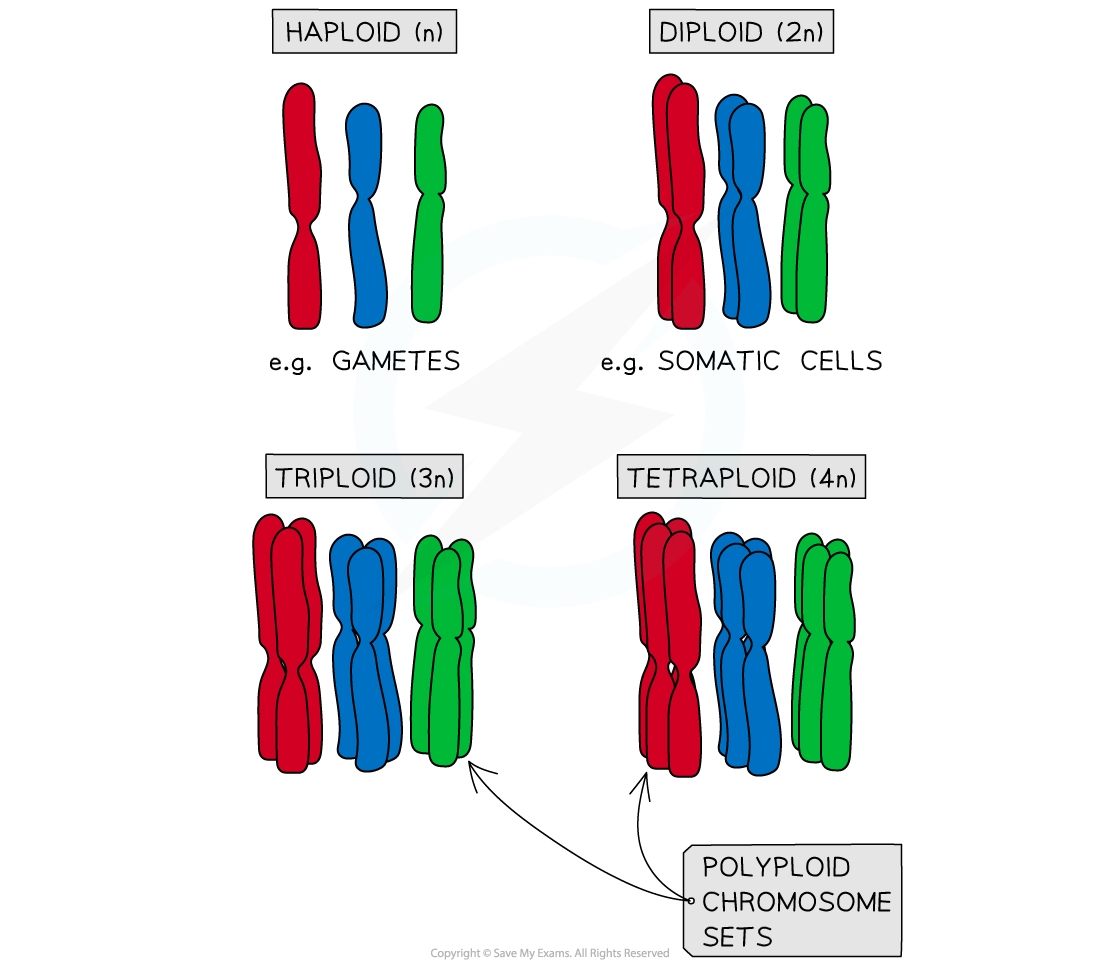
IB DP Biology HL复习笔记10.3.4 Polyploidy & Speciation翰林国际教育
diploid: [adjective] having two haploid sets of homologous chromosomes.